- Home
- David Gemmell
Bloodstone Page 15
Bloodstone Read online
Page 15
Tomorrow he would give Oath for Beth McAdam, and Else would scold him for the entire evening. But tonight he would enjoy the silence. The kettle began to vibrate. Taking a cloth from a peg on the wall, he wrapped it around the handle and lifted the kettle from the range. Filling the mug, he added the powdered Baker’s brew and three heaping spoonfuls of honey. As he was stirring it, he heard a tapping at the front door. Annoyed by the interruption, he carried the drink through the kitchen and across the main room. “Come in!” he called, for the door was never locked.
Daniel Cade eased his way inside, leaning heavily on his sticks, his face red from exertion. Josiah Broome hurried to his side, taking hold of the Prophet’s arm and guiding him to a deep chair. Cade sank down gratefully, laying his sticks on the floor.
Leaning his head back, the Prophet took several deep breaths. Broome laid the mug of Baker’s on a table to his visitor’s right. “Drink that, sir,” he said. “It will help restore your strength.” Hurrying back to the kitchen, he made a second mug and returned to the fireside. Cade’s breathing had eased, but the old man looked tired and worn out, with dark circles beneath his eyes and an unhealthy pallor replacing the fiery red of his cheeks.
“I’m about all done in, Son,” he wheezed.
“What brings you to my home, sir … not that you are unwelcome, you understand!”
Cade smiled. Lifting the Baker’s with a trembling hand, he sipped the brew. “By God, that is sweet!” he said.
“I could make you another,” offered Broome.
Cade shook his head. “It will do, Son. I came to talk, not to drink. Have you been noticing the new arrivals?”
Broome nodded. More than a score of riders had come into Pilgrim’s Valley during the past week, all of them tough men, heavily armed. “Jerusalem Riders,” he said. “They serve the Deacon.”
Cade grunted. “Saul, more like. I don’t like it, Broome. I know their kind. God’s blood, I am their kind. Brigands, take my word for it. I don’t know what game Saul is playing, but I don’t like it, Broome.”
“I understand that Jacob Moon called them in after the murder of poor Bull Kovac,” said Broome.
Cade’s pale eyes narrowed. “Yes,” he said softly. “The man you and Beth were to stand Oath for. Now two of those same Jerusalem Riders have moved into Bull’s house. There’s something very wrong here, but no one else can see it.”
“What do you mean?”
“It started with the burning of the church. Why were no Crusaders present? And how did the raiders know that there would be no one to stand against them? There were at least twenty masked killers around that building, yet only five left the town. Take away the dead man outside the church, and that leaves fourteen unaccounted for in the raid. Curiously, that is the same number of Crusaders who rode out to the supposed attack on Shem Jackson’s farm.”
“You’re not suggesting …?”
“I’m suggesting that something is beginning to smell bad in Pilgrim’s Valley.”
“I think, if you’ll pardon my directness, that you are overreacting. I have spoken to the Apostle Saul, and he assures me that Jacob Moon and his riders will soon apprehend the brigands who murdered poor Bull. These men are carefully chosen for their skills and their dedication, as indeed are the Crusaders. I have known Leon Evans since he was a boy; I cannot believe he would have taken part in such a … such a dreadful business.”
“You’ve more faith than I have,” said Cade wearily. “Something is happening, and I don’t like it. And I don’t like that Saul, can’t understand what the Deacon sees in him save that he’s the only one of the Apostles still living.”
“I’m sure he is a fine man. I have spoken to him on many occasions and always found him to be courteous and caring,” said Broome, beginning to be uncomfortable. “He knows all the Scriptures by heart, and he spends his day in prayer and communion with the Lord.”
Cade chuckled. “Come, come, Broome, you don’t need to pull no wool over these old eyes. You ain’t a Christian, though you’re a damn sight closer to it than many others. But that’s by the by. Jon told me that you were one of the few who knew of his past. He trusted you … and I will, too. I’m heading for Unity tomorrow. I’m going to try to see the Deacon and find out just what the hell is happening.”
“Why come to me?”
“I think Saul knows how I feel, and he may try to stop me from reaching the capital. If I don’t make it, Broome, I want you to tell Jonnie what I said. You understand?”
“But … but he’s dead. Lost in the desert.”
“He ain’t dead. Don’t you listen to the gossip? A man claiming to be the Jerusalem Man shot the Purity Oath Taker to death. He ain’t dead, Broome. Goddamn, he’s alive again! And he’ll be back.”
A movement came from the doorway, and Broome glanced up to see a tall, wide-shouldered man standing there, a gun in his hand. “What do you want?” he asked, rising.
“Been told to kill you,” the man said amiably, “but no one said a goddamn thing about this old fart. Still, orders is orders.” The gunman smiled. His pistol thundered, and Broome was smashed back against the wall. He fell heavily, pain flaring in his chest, and collided with the small table by his chair. It tipped, and he felt the mug of Baker’s strike his back, the hot liquid soaking through his shirt. Despite the pain, he stayed conscious and stared up at the man who had shot him.
“Why?” he asked, his voice clear.
The gunman shrugged. “I don’t ask questions,” he said.
“Neither do I,” said Daniel Cade.
Broome’s eyes flicked to the Prophet. His voice sounded different, colder than the grave. The gunman swung his pistol, but he was too late and Cade shot him twice in the chest. The man fell back into the door frame and tried to lift his weapon, but it fired into the floor. He sagged down, his fingers losing hold of the pistol.
“You’re … supposed to … be a … man of God,” said the gunman, coughing blood.
“Amen to that,” said Cade. His gun came up, and a third shot smashed through the man’s skull. “Rot in hell,” said the Prophet. Broome struggled to his knees, blood staining his shirt, his left arm hanging uselessly at his side.
“Come on, Jed,” shouted a voice from outside, “what the hell is keeping you?”
“If you can walk, Broome,” whispered Cade, “I suggest you go out back. You’ll find my buggy. Make for Beth McAdam’s place.”
“What about you?”
“Go now, Son. There’s no more time for talk.”
Cade had broken open his pistol and was feeding shells into the cylinder. Broome stood, staggered, then backed away through the kitchen. The glass of the front window shattered, and a man pushed the curtains aside. Cade shot him. Another gunman leapt through the doorway. Broome saw him fire twice, both bullets hammering into the Prophet. Cade’s gun boomed, and the gunman flew back, blood spraying the wall behind him.
Broome staggered out into the night, hauling himself up onto Cade’s buggy. Grabbing the reins with his good hand, he kicked free the brake and lashed the reins down on the horse’s back. The beast lurched into the traces, and the buggy picked up speed.
A shot sounded from behind him, then another. He heard a bullet thud into the wooden frame and ducked down. Then the buggy was clear and racing away into the night.
“I’d like to know what is going on,” Nestor Garrity told Clem Steiner once the two men were alone. Clem looked away and cut into his steak. “Who is he? Really?” Nestor persisted.
Clem pushed away his plate and wiped his mouth with a napkin. “He’s who he says he is.”
“The Jerusalem Man? He can’t be! I know him! He’s the Preacher, for God’s sake!”
“Times change, Nestor. Men change. He fought the Daggers, and he’d had enough. Think of it, boy. He was a sad, bitter man, searching for a city that didn’t exist. Then he sent the Sword of God through time and destroyed a world. Maybe two worlds. He was in love with Beth. He wanted a different
life. The last ounce of power in the Daniel Stone gave him back his youth. It was a new start. As far as I know, only two people recognized him when he came back from the Wall: Josiah Broome and Edric Scayse. Scayse took the secret to the grave—and Broome? He’s a peaceful man and a dreamer. He liked what Shannow was trying to become. That’s all, Nestor.”
“But the books? The chariot to heaven? Is it all lies?”
“Mostly,” Clem said, with a wry grin. “But then, legends are like that, Son. We misremember them. We don’t do it intentionally most of the time. Take me, for example. When I was a kid, I had a teacher who told me that I would be a brigand or a warmaker. He expelled me from school and told my folks there was no good in me. Now I own three hundred thousand acres and I’m a rich, powerful man. I saw that teacher last year; he came to live in Pernum. Know what he said? ‘Clem, I always knew you had the seeds of greatness in you.’ He wasn’t lying. Understand?”
The young man shook his head. “I don’t understand any of it. It’s all built on lies. The Deacon, everything. It’s all lies! All that Bible shit. All the studying. Lies!”
“Whoa, Son! Don’t lump it all in together!” warned Clem. “We all need heroes, and Shannow was—is—a good man. No matter what other people may write about him, he always did what he thought was right, and he would never pass by and let evil have its way. And some of the things he did can’t be disputed. He fought the Hellborn, and he destroyed the Guardians who were behind the war. Nestor, he is a good man; it is not his fault that others—of a more political mind—chose to take his name in vain.”
“I want to go home,” said Nestor. “I don’t want to do this anymore.”
“Sure, Son,” said Clem. “I understand that.”
Clem paid for the meal and stood. Nestor rose also, his shoulders hunched, his eyes distant. Clem felt for the boy. The iron hooves of reality had ground his dreams to dust. “Let’s go,” said the older man, and together they walked out onto the street. A shot sounded, and shards of wood exploded from the post beside Clem’s head; he ducked, drew his pistol, and dived forward. A rifleman stepped into sight, and Clem fired, the bullet striking the man in the shoulder and spinning him, the rifle falling from his hands. Nestor stood transfixed; then he saw the man from the tavern.
Sachs was aiming a pistol at Clem’s back. Without thinking, Nestor drew his pistol and triggered it, the shell hammering home into Sachs’s chest. Suddenly all of Nestor’s anger welled up, and, walking toward the wounded man, he fired again. And again. Each shot thundered home, and Sachs was hurled back against the wall of a building.
“You bastard!” screamed Nestor, continuing to pull the trigger even after the gun was long empty and the lifeless would-be assassin was dead at his feet. Clem came alongside him, gently pulling the pistol clear. Nestor was crying, his body racked by deep, convulsive sobs. “It’s all lies!” he said.
“I know,” said Clem.
Seth Wheeler appeared, a long-barreled pistol in his hands. “What in Hades is happening here?” he asked Clem.
“We had an argument earlier with … him,” he said, pointing down at the corpse. “When we left the eating house, they opened fire on us. There’s a man back there with a busted shoulder; I guess he’ll tell you more.”
“Well,” said Wheeler, “it’s for damned sure that Sachs ain’t going to tell us anything. You boys better walk with me to the office. I’ll need to make a report for the town elders.”
“He was a damn fool,” Clem said bitterly. “He’s dead over a spilled beer.”
“He’s killed others for less, I reckon,” muttered Wheeler. “But there was never any proof.”
Later, when Seth Wheeler had painstakingly written out his report, he put down his pen and looked up at Nestor. The young man’s face had a ghostly pallor, and his eyes were distant. “You all right, Son?” asked the Crusader. Nestor nodded but said nothing, and Wheeler looked at him closely. “I guess you’ve never been in a killing fight before.” Nestor just stared at the floor. Wheeler turned his attention to Clem. “I think you should both ride out. Sachs wasn’t popular, but he had drinking friends. Tough men. They may feel the need to … well … you know.”
Clem nodded. “We were leaving anyway in the morning. But now’s as good a time as any.”
Wheeler nodded. “I take it you’ll be traveling toward Domango. It’s where your friend was last seen.”
“I guess so,” agreed Clem.
“Then I’d take it as a kindness if you’d stop by and see that my mother is well. She has a farm just over the mountains. You take the Domango trail and you won’t miss it. An old place in a valley east of the trail. She’ll fix you a good meal and give you a roof for the night.”
“Any message?”
Wheeler shrugged and gave a boyish grin. “Just tell her that Seth and Pad are fine and we’ll be coming by at summer’s end.”
Wheeler lifted Nestor’s empty pistol and opened the side drawer of his desk, taking out a box of shells. Swiftly he loaded the revolver and handed it to Nestor. “An empty gun is no good to anyone,” he said. “And you might as well keep these,” he added, tossing the box to Clem.
“It might be better if all the guns were empty,” replied Clem, reaching out to shake the Crusader’s hand.
“Amen to that,” said Seth Wheeler.
Shannow lay awake in the spare bedroom, staring out of the window at the bright stars. He and Amaziga had talked into the early hours, then she had shown him through to this curious room. The bed had a metal frame and a thick mattress, but instead of blankets there was a single down-filled covering. Beside the bed was a small table on which sat one of the strange lamps that burned brightly without oil. It was lit and extinguished by what appeared to be a coat button attached to the base. Beside this was a small box, which at first bore the glowing numbers 03:14. When Shannow next glanced at it, the numbers had changed: 03:21. He watched it and soon worked out that it changed at regular intervals. A timing device!
Climbing from his bed, he walked naked to the window and opened it. The night air was fresh but not cool. Indeed, it was considerably warmer outside than in. A humming sound began, coming from the wall by his bed. There was a metal grille there, and he moved to it. Cold air was spilling from the vent.
Shannow walked across the room and entered the second room Amaziga had shown him. Stepping inside the tall glass box, he turned the small steel wheel as she had demonstrated. Cold water streamed from a dish above him. Taking a tablet of soap, he began to scrub the dust of travel from his body. But the water grew steadily more hot until at last he had to leap from the box. Kneeling down, he examined the wheel. There were painted arrows on it pointing to two colored circles, one blue and one red. The colored circles were repeated on the faucets at the sink beside the glass box. Shannow pressed each: one hot and the other cold.
Returning to the shower, he twisted the metal wheel back toward the blue. Gradually, the steam subsided and the water cooled. Satisfied, he stepped back into the box and rinsed the soap from his body.
Refreshed, he toweled himself down and wandered back to his bed. The humming was still sounding from above him, and he found the noise irritating, like making camp close to a beehive. Standing on the bed, he stared into the vent, seeking some way to close it. There was a lever, and just as he was about to press it, he heard Lucas’s voice echoing in the vent. “… too dangerous, Amaziga. It has already all but destroyed a world. Why take such a terrible risk?”
Shannow could not hear her response, but Lucas cut in swiftly: “Nothing, as you know, is certain. But the probabilities are too high. Let me show you the data.”
Stepping down from the bed, Shannow walked to the door, easing it open and moving into the carpeted hallway. Now the voices were louder, and he could hear Amaziga: “… probabilities are high; they are bound to be. But they would be high regardless of whatever action I take. Sarento has become the Bloodstone, and with the power it gives him and with his extraordinary intel
ligence, he is almost bound to discover gateways. Is that not so?”
“That is not the point,” came the reasoned voice of the machine man. “By your actions you will increase the probabilities.”
“By a fraction,” said Amaziga.
“And what of Shannow? The risks to him are great. He might die on this quest of yours.”
“Hardly the greatest loss to the culture of a planet.” Amaziga sneered. “He is a killer, a man of violence. Whereas the rescue of Sam would mean so much. He was … is … a scientist and a humanitarian. Together we may even be able to stop this world from falling. You understand? At least on this version of earth we might prevent the apocalypse. That alone is worth the risk to Shannow’s life.”
The Jerusalem Man stepped back into his room and lay down.
There was truth in the harsh words he had heard. From somewhere deep in his memory he remembered Josiah Broome saying: “I dread to think of people who look up to men like Jon Shannow. What do they give to the world? Nothing, I tell you.”
His guns were hanging over the back of a chair. The weapons of Thundermaker.
What peace have they ever brought? he wondered. What good have you ever done?
It was not a question he could answer, and he fell into an uneasy sleep.
“Lie back and rest,” the voice told him, but Josiah Broome could not obey it. His shoulder ached abominably, and he felt a painful throbbing in the fingers of his left hand. Nausea swept over him in waves, and tears squeezed through his closed eyelids, flowing to his thin cheeks. Opening his eyes, he saw an old man with a long white beard.
“I’ve been shot,” he said. “They shot me!” Even as he spoke, he realized how stupid it must sound. Of course the man knew he had been shot. Broome could feel the bandage around his chest and up over his shoulder. “I’m sorry,” said Broome, weeping and not knowing what he was apologizing for. The pain flared in his wound, and he groaned.

 Bloodstone
Bloodstone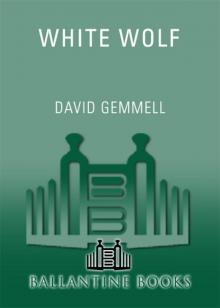 White Wolf
White Wolf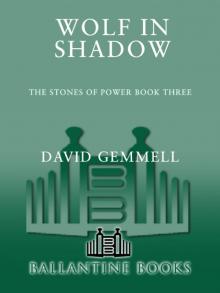 Wolf in Shadow
Wolf in Shadow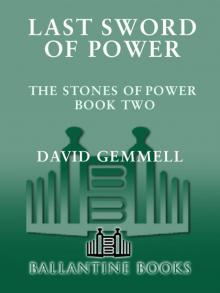 Last Sword of Power
Last Sword of Power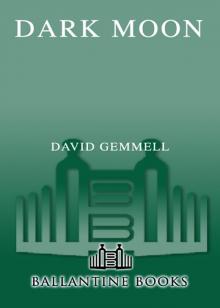 Dark Moon
Dark Moon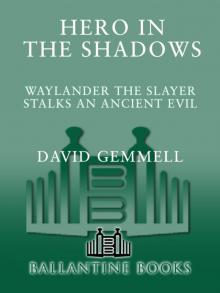 Hero in the Shadows
Hero in the Shadows Gemmell, David - Drenai 09 - Hero In The Shadows
Gemmell, David - Drenai 09 - Hero In The Shadows Waylander
Waylander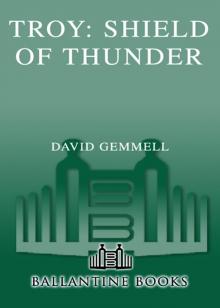 Shield of Thunder
Shield of Thunder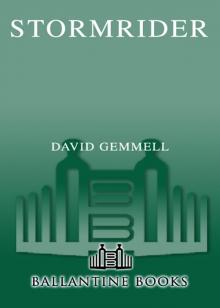 Stormrider Stormrider
Stormrider Stormrider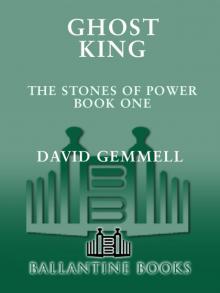 Ghost King
Ghost King Legend
Legend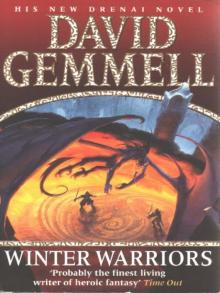 Winter Warriors
Winter Warriors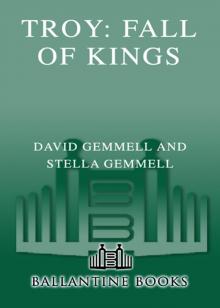 Fall of Kings
Fall of Kings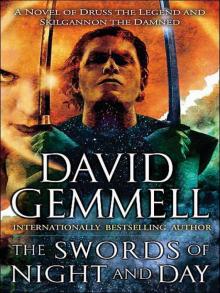 The Swords of Night and Day
The Swords of Night and Day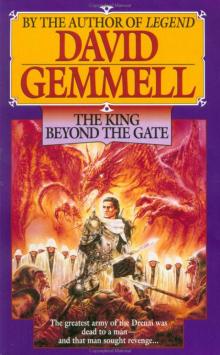 The King Beyond the Gate
The King Beyond the Gate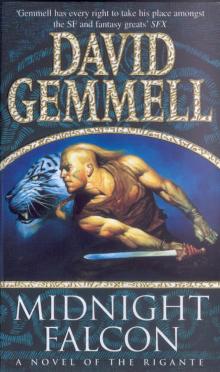 Midnight Falcon
Midnight Falcon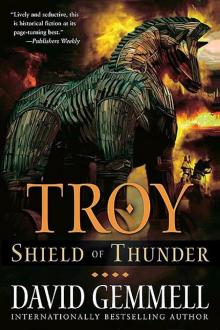 02 - Shield of Thunder
02 - Shield of Thunder In the Realm of the Wolf
In the Realm of the Wolf Ravenheart
Ravenheart The First Chronicles of Druss the Legend
The First Chronicles of Druss the Legend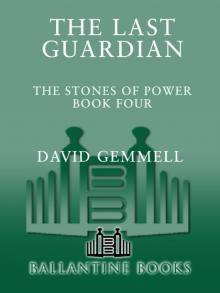 Last Guardian
Last Guardian Stormrider
Stormrider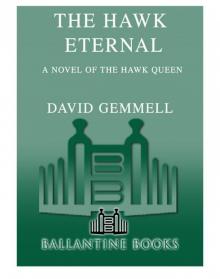 The Hawk Eternal
The Hawk Eternal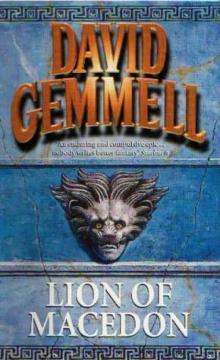 Lion of Macedon
Lion of Macedon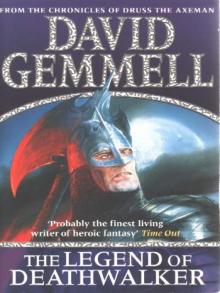 The Legend of Deathwalker
The Legend of Deathwalker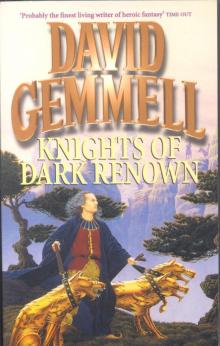 Knights of Dark Renown
Knights of Dark Renown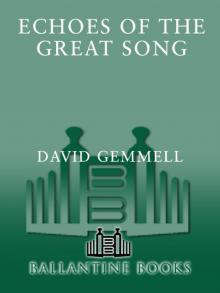 Echoes of the Great Song
Echoes of the Great Song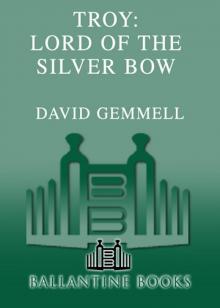 Lord of the Silver Bow
Lord of the Silver Bow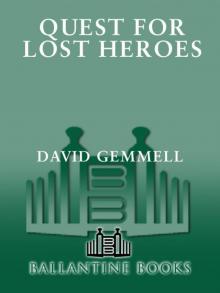 Quest for Lost Heroes
Quest for Lost Heroes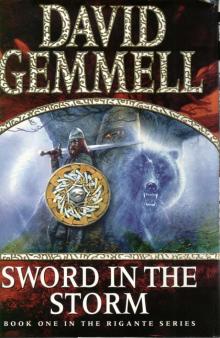 Sword in the Storm
Sword in the Storm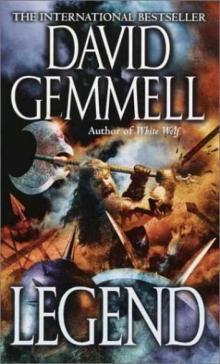 Drenai Saga 01 - Legend
Drenai Saga 01 - Legend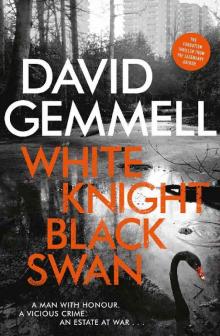 White Knight/Black Swan
White Knight/Black Swan![[Troy 02] - Shield of Thunder Read online](http://i1.bookreadfree.com/i/03/19/troy_02_-_shield_of_thunder_preview.jpg) [Troy 02] - Shield of Thunder
[Troy 02] - Shield of Thunder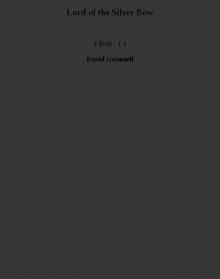 Lord of the Silver Bow t-1
Lord of the Silver Bow t-1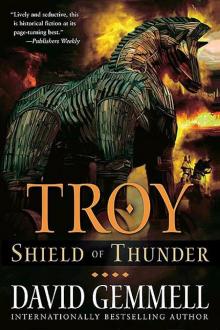 Shield of Thunder t-2
Shield of Thunder t-2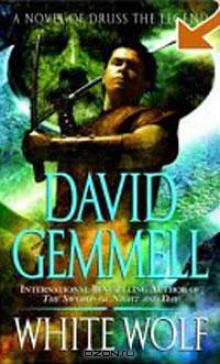 White Wolf: A Novel of Druss the Legend dt-10
White Wolf: A Novel of Druss the Legend dt-10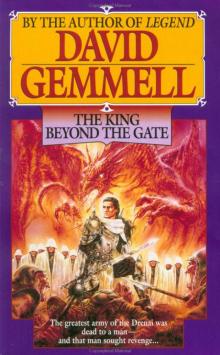 Drenai Saga 02 - The King Beyond the Gate
Drenai Saga 02 - The King Beyond the Gate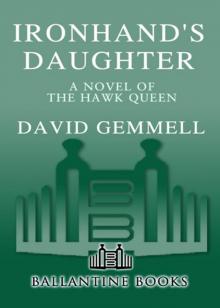 Ironhand's Daughter
Ironhand's Daughter Gemmell, David - Drenai 06 - The First Chronicles of Druss the Legend
Gemmell, David - Drenai 06 - The First Chronicles of Druss the Legend The Last Guardian
The Last Guardian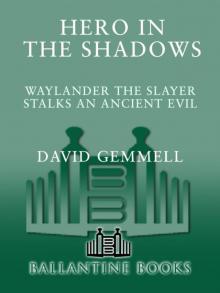 Hero in the Shadows: A Waylander the Slayer Novel
Hero in the Shadows: A Waylander the Slayer Novel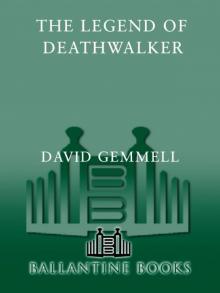 The Legend of the Deathwalker
The Legend of the Deathwalker